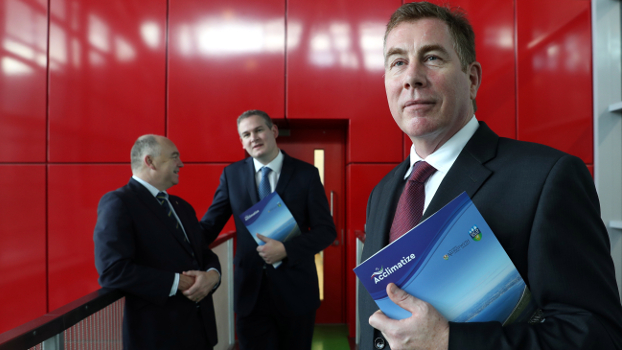Researchers at UCD and Aberystwyth University have begun work on Acclimatize, a five-year, €6.7 million climate change research initiative.
The project will develop a range of practical management methods, including smart real‐time predictive tools, to improve the quality of such coastal waters to ensure compliance with regulations to protect human health and the marine environment. Data models will be developed to inform the effects of climate change, through altered weather patterns, including rainfall, temperature and tides which impact the quality of water in coastal areas.
The Acclimatize project will focus on designated and ‘at-risk’ bathing waters in two complementary environments, a large scale urban and a rural agricultural environment.
The large scale urban environment is represented in the project by ‘at-risk’ bathing waters in Dublin Bay (Sandymount, Merrion and Dollymount strands), whereas the rural agricultural environment will focus on ‘at-risk’ bathing waters in Wales; Wiseman’s Bridge (Pembrokeshire), Newquay North and Aberystwyth South (Ceredigion, Aberdyfi (Gwynedd) and Rhyl (Denbighshire).
Prof Wim Meijer, Head of the UCD School of Biomolecular and Biomedical Science, who is leading the Acclimatize project, said: “Climate change is predicted to produce more weather extremes and, in particular, storminess in North West Europe including the Irish Sea. This will have negative impacts on coastal water quality in the period to 2100 which will threaten the sustainable use of coastal waters which form the economic basis of coastal tourism and shellfish harvesting industries.
“Improvement of bathing waters is often complicated, or prevented altogether, by a lack of knowledge of the pollution streams that contribute to non-compliance. Climate proofing of regulatory and infrastructural decisions affecting bathing water quality is therefore a policy challenge urgently needing the policy evidence-base which we will provide in the Acclimatize project.”
Prof David Kay, Centre for Research into Environment & Health, Department of Geography and Earth Sciences, Aberystwyth University, who is leading the project in Wales, said: “The first year of Acclimatize in Wales is progressing well with excellent support from relevant local authority and resource agency partners.”
“The Acclimatize Cemaes Bay study location was chosen to assist with sustainable compliance of this site against the EU bathing Water Directive using the latest real-time modelling strategies to protect public health through cutting-edge modelling and management approaches.”
“The work has generated significant international interest already and early field data have been communicated to the WHO and EU policy and scientific communities including a presentation to the UK inter-agency bathing waters biennial conference in November 2017 in Wrexham. Follow-on work at additional sites, together with an examination of climate change impacts, will commence with our project partners in the autumn of 2017.”
Acclimatize will also have input from Prof John O’Sullivan from the UCD School of Civil Engineering, and Prof Gregory O’Hare, UCD School of Computer Science.
TechCentral Reporters








Subscribers 0
Fans 0
Followers 0
Followers